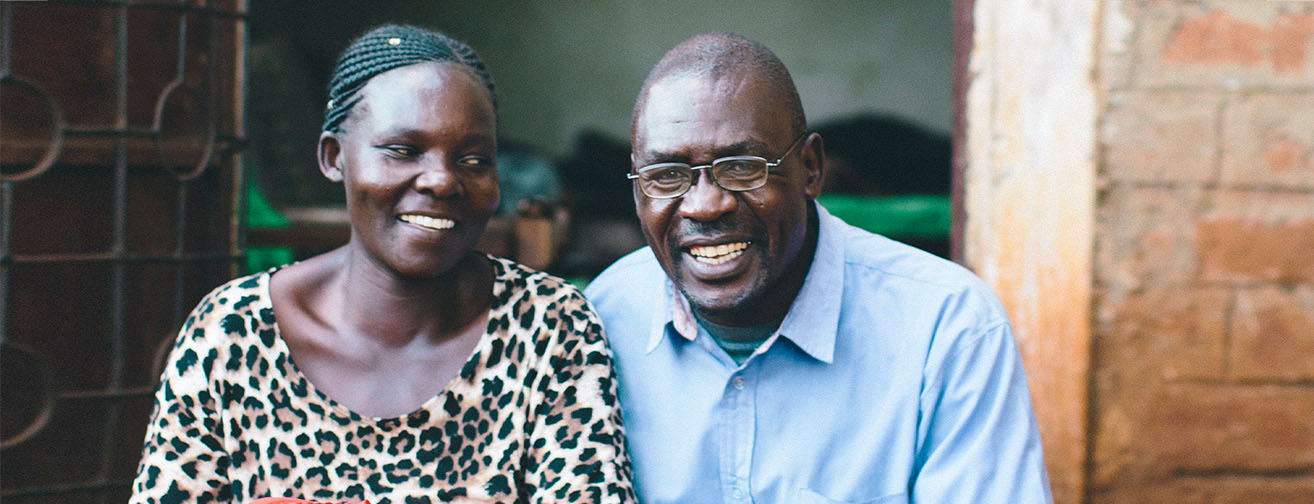Yesterday, we dove into the “secret” power to Jesus’s life—living in connection to His Father. Then, looking at John 15, we discovered that it is the same for us—that the secret to producing godly fruit is not to focus our efforts on producing better fruit, but in learning how to remain connected to the vine, our source of life, which is Jesus. Our life as Christians is meant to flow from our connection to Him.
Now, of course, living in connection to Jesus runs quite contrary to the normal flow of this world. To do so requires intentionality, focus, and no small degree of effort. Don’t let the word effort there scare you. We are of course “saved by grace, not of our own works,” as Ephesians 2 reminds us. But as the late Christian philosopher and theologian Dallas Willard reminds us, “Grace is not opposed to effort. It’s opposed to earning.” Effort directed at maintaining our awareness of our connection and unity with Jesus is an important part of the successful Christian life.
To see a great example of this on display, we look first and foremost to the life of Jesus. What practices do we see in His life that allowed Him to live in an awareness of His connection with His Father? There are several, which we will dive into here.
First, we see Jesus regularly prioritized prayer and solitude. All throughout the gospels, we see Jesus sneaking away to spend time alone and to pray to His Father. Here are just a few examples:
“Very early in the morning, while it was still dark, Jesus got up, left the house and went off to a solitary place, where he prayed.” (Mark 1:35, NIV)
“And after he had dismissed the crowds, he went up on the mountain by himself to pray.” (Matthew 14:23, ESV)
In many senses, you might go so far as to say that prayer is the very act of living in the awareness of our unity with God, and in active dependence on Him. Making prayer a core part of our lives is critical to learning to abide in Christ and allowing His life to flow through us.
Secondly, we see Jesus fasted. In Matthew chapter 4, we read,
“Then Jesus was led up by the Spirit into the wilderness to be tempted by the devil. And after fasting forty days and forty nights, he was hungry.” (Matthew 4:1–2, ESV)
In this passage, we go on to read how Jesus was tempted by the enemy and was victorious time and again. Though his body was hungry, His time of fasting gave Him a spiritual fortitude that gave Him power to resist the temptations of this world. There is much mystery to fasting, but it would seem that at least one of the benefits is that, while we intentionally deny our bodies what it wants, it builds us up spiritually, teaching us to rely not just on physical food, but on God himself (see Matthew 4:4).
Thirdly, we see Jesus knew the Scriptures. We should never come to the Scriptures out of a legalistic mindset, thinking that we are impressing God by our rigorous study. Spending time studying the Bible is not about checking off a spiritual to-do list so we can feel good about ourselves. In John chapter 5, Jesus addresses the Pharisees in the following manner:
“You study the Scriptures diligently because you think that in them you have eternal life. These are the very Scriptures that testify about me, yet you refuse to come to me to have life.” (John 5:39–40, NIV)
For Jesus, it would seem the purpose of the written word is to lead us to encounter the Living Word. The Pharisees and teachers of the law in Jesus’s day knew the text quite well—but their focus was off, and it benefited them little. In their hearts, they were still far from God. When we study the Scriptures, our heart’s desire and prayer should be for God to reveal Himself to us as we read. We should read the Bible not out of legalism, but out of love, seeking to encounter the living God through its pages. As we do, once again, we reinforce our connection to the very life of God.
Fourthly, we see Jesus practiced Sabbath. While Jesus certainly confronted legalistic practices that had come to be associated with this day, He certainly did not throw away the Sabbath. If anything, he revealed what the Sabbath was really all about. In Mark’s gospel, we read,
“Then Jesus said to them, “The Sabbath was made to meet the needs of people, and not people to meet the requirements of the Sabbath.” (Mark 2:27, NLT)
For Jesus, resting on the Sabbath is not something we do out of a legalistic duty to check the box on our religious obligations. It’s about receiving a gift from God. It’s about aligning ourselves with our Creator, who also rested on the seventh day, as a pattern for us that we should follow. Perhaps Jesus healing so many people on the Sabbath is a sign to us that Sabbath and rest are about healing. As we make a habit of ceasing from our toil and striving for one day per week, and instead, learn to rest, we once again learn to abide in Christ and the life He offers us.
There are certainly more practices from Jesus’s life that show us how to live in connection to the life of God—but this list is a good starting point. None of this is about legalism or checking off religious boxes. If you try to implement these practices in order to somehow impress God or feel good about yourself, you will not realize their true benefit, which is to learn how to come to God in order to have life. As you implement these practices and learn to lean into the life of God, you will find the strength you need to live as He calls you to—not out of self-righteous striving—but out of a genuine connection and relationship with God. Indeed, it is only the one who regularly spends time connecting with their Heavenly Father who is empowered to live as a beloved child.
Day 28 Freedom Work
Scripture Reading — Read John 16–17, noting the importance of living in unity with Christ.
Journaling Exercises — Answer the following questions at length in your journal. Aim to spend at least 5–7 minutes per question.
- Has it ever struck you that Jesus, the very Son of God, still needed to do things like pray, spend time in solitude, rest, fast, and learn the Scriptures? If Jesus needed these things, what is your need for them
- For people who struggle with compulsive sin, it is rare that they have anything resembling a vibrant and healthy devotional life. Take an honest assessment of the practices you currently have in your life that help you to routinely connect you to God as your source of life and write them down in detail.
- Again, not making it about legalistic performance, but about living in genuine connection to the life of God, what are some strategic practices you can implement into your life to learn to abide more intentionally in Christ? How would implementing these practices help you live with a greater awareness of God’s love for you?
Prayer — Father, I recognize my utter need for you, as I have tried to live free so many times in my own strength, and failed over and over again. Teach me to lean into you as my very source of life. I don’t want to be like the Pharisees, going through the motions of religion while missing your heart. Your heart is the very thing I want to be connected with! Help me to get free from legalism and to learn to practice the spiritual disciplines out of a genuine desire to know you better and to drink deeply of the water of life, which you offer. I am tired of looking for life in places it can’t be found. I am tired of trying to produce fruit on my own, disconnected from your life. Reveal to me your heart as a Father to spend time with me in the secret place—and empower me to live as a beloved child. Help me to follow Jesus’s example and to implement practices into my daily life that will help me to live connected to you as my source and my strength! May my very life flow from you. Amen.





